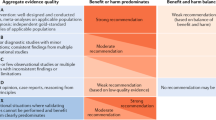Abstract
Purpose
Type 2 amiodarone-induced thyrotoxicosis (AIT2) is a form of drug-induced destructive thyroiditis, usually treated with oral glucocorticoids (oGCs). Our objective was to investigate the short-term effects of intravenous glucocorticoids (ivGCs) on serum thyroid hormone concentrations in patients with AIT2.
Methods
Exploratory study of three naive AIT2 patients treated with iv methylprednisolone (two pulses of 400 mg with no interpulse oGCs), followed by oGCs, matched 1:3 with AIT2 patients treated with oGCs alone. Changes in serum thyroid hormone concentrations were evaluated in the short-term period (24 h and 7 days) and after a cumulative dosage of 400 and 800 mg equivalents of methylprednisolone; in addition, healing time and duration of exposure to GCs were calculated.
Results
During the first 24 h of treatment, serum FT4 concentrations increased in ivGCs patients, and decreased in oGCs patients (+ 3.3% vs − 10.7%, respectively, p = 0.025). After 7 days, serum FT4 and FT3 concentrations decreased significantly in both groups, with no statistical difference between them (p = 0.439 for FT4 and p = 0.071 for FT3), even though the cumulative GCs dose was higher in ivGCs than in oGCs patients (800 mg vs 280 mg, p = 0.008). Furthermore, the iv administration of single 400 mg pulses of methylprednisolone resulted in a less significant decrease in serum thyroid hormone concentrations when compared to equivalent GCs doses fractionated in several consecutive days (p = 0.021 for FT4 and p = 0.052 for FT3). There were no significant differences in the healing time (p = 0.239) and duration of exposure to GCs (p = 0.099).
Conclusions
High-dose ivGCs therapy does not offer advantages over standard oGCs therapy in the rapid, short-term control of AIT2.


Similar content being viewed by others
References
Bartalena L, Bogazzi F, Chiovato L, Hubalewska-Dydejczyk A, Links TP, Vanderpump M (2018) 2018 European thyroid association (ETA) Guidelines for the management of amiodarone-associated thyroid dysfunction. Eur Thyroid J 7(2):55–66. https://doi.org/10.1159/000486957
Bogazzi F, Bartalena L, Martino E (2010) Approach to the patient with amiodarone-induced thyrotoxicosis. J Clin Endocrinol and Metab 95(6):2529–2535. https://doi.org/10.1210/jc.2010-0180
Martino E, Bartalena L, Bogazzi F, Braverman LE (2001) The effects of amiodarone on the thyroid. Endocr Rev 22(2):240–254. https://doi.org/10.1210/edrv.22.2.0427
Eskes SA, Endert E, Fliers E, Geskus RB, Dullaart RP, Links TP, Wiersinga WM (2012) Treatment of amiodarone-induced thyrotoxicosis type 2: a randomized clinical trial. J Clin Endocrinol Metab 97(2):499–506. https://doi.org/10.1210/jc.2011-2390
Bogazzi F, Tomisti L, Rossi G, Dell'Unto E, Pepe P, Bartalena L, Martino E (2009) Glucocorticoids are preferable to thionamides as first-line treatment for amiodarone-induced thyrotoxicosis due to destructive thyroiditis: a matched retrospective cohort study. J Clin Endocrinol Metab 94(10):3757–3762. https://doi.org/10.1210/jc.2009-0940
Campi I, Perego GB, Ravogli A, Groppelli A, Parati G, Persani L, Fugazzola L (2019) Pulsed intravenous methylprednisolone combined with oral steroids as a treatment for poorly responsive type 2 amiodarone-induced thyrotoxicosis. Eur J Endocrinol 181(5):519–524. https://doi.org/10.1530/EJE-19-0515
Bogazzi F, Bartalena L, Tomisti L, Rossi G, Tanda ML, Dell'Unto E, Aghini-Lombardi F, Martino E (2007) Glucocorticoid response in amiodarone-induced thyrotoxicosis resulting from destructive thyroiditis is predicted by thyroid volume and serum free thyroid hormone concentrations. J Clin Endocrinol Metab 92(2):556–562. https://doi.org/10.1210/jc.2006-2059
O'Sullivan AJ, Lewis M, Diamond T (2006) Amiodarone-induced thyrotoxicosis: left ventricular dysfunction is associated with increased mortality. Eur J Endocrinol 154(4):533–536. https://doi.org/10.1530/eje.1.02122
Conen D, Melly L, Kaufmann C, Bilz S, Ammann P, Schaer B, Sticherling C, Muller B, Osswald S (2007) Amiodarone-induced thyrotoxicosis: clinical course and predictors of outcome. J Am Coll Cardiol 49(24):2350–2355. https://doi.org/10.1016/j.jacc.2007.02.054
Kaderli RM, Fahrner R, Christ ER, Stettler C, Fuhrer J, Martinelli M, Vogt A, Seiler CA (2016) Total thyroidectomy for amiodarone-induced thyrotoxicosis in the hyperthyroid State. Exp Clin Endocrinol Diabetes 124(1):45–48. https://doi.org/10.1055/s-0035-1565094
Cappellani D, Papini P, Pingitore A, Tomisti L, Mantuano M, Di Certo AM, Manetti L, Marconcini G, Scattina I, Urbani C, Morganti R, Marcocci C, Materazzi G, Iervasi G, Martino E, Bartalena L, Bogazzi F (2020) Comparison between total thyroidectomy and medical therapy for amiodarone-induced thyrotoxicosis. J Clin Endocrinol Metab 105(1):242–251. https://doi.org/10.1210/clinem/dgz041
Kondo T, Amano K (2018) Era of steroid sparing in the management of immune-mediated inflammatory diseases. Immunol Med 41(1):6–11. https://doi.org/10.1080/09114300.2018.1451593
Funding
This research did not receive any specific grant from any funding agency in the public, commercial or not-for-profit sector.
Author information
Authors and Affiliations
Corresponding author
Ethics declarations
Conflict of interest
The authors declare that there is no conflict of interest that could be perceived as prejudicing the impartiality of the research reported.
Ethics approval
The study was approved by the Review Board of the Department of Clinical and Experimental Medicine of the University of Pisa.
Informed consent
All the patients involved gave their written informed consent for collection of clinical data in anonymous form in a database and its usage for research purposes.
Additional information
Publisher's Note
Springer Nature remains neutral with regard to jurisdictional claims in published maps and institutional affiliations.
Rights and permissions
About this article
Cite this article
Cappellani, D., Urbani, C., Manetti, L. et al. Effect of high-dose intravenous glucocorticoid therapy on serum thyroid hormone concentrations in type 2 amiodarone-induced thyrotoxicosis: an exploratory study. J Endocrinol Invest 43, 1637–1643 (2020). https://doi.org/10.1007/s40618-020-01252-2
Received:
Accepted:
Published:
Issue Date:
DOI: https://doi.org/10.1007/s40618-020-01252-2



